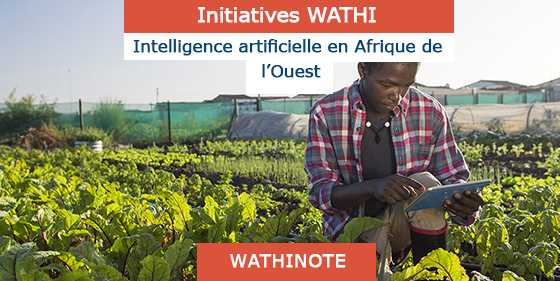

Authors: Youssef Travaly and Kevin Muvunyi
Affiliated Organisation: Brookings
Site of publication: brookings.edu
Type of publication: Article
Date of publication: January 2020
The future is intelligent: By 2030, artificial intelligence (AI) will add $15.7 trillion to the global GDP, with $6.6 trillion projected to be from increased productivity and $9.1 trillion from consumption effects. Furthermore, augmentation, which allows people and AI to work together to enhance performance, “will create $2.9 trillion of business value and 6.2 billion hours of worker productivity globally.” In a world that is increasingly characterized by enhanced connectivity and where data is as pervasive as it is valuable, Africa has a unique opportunity to leverage new digital technologies to drive large-scale transformation and competitiveness. Africa cannot and should not be left behind.
There are 10 key enabling technologies that will drive Africa’s digital economy, including cybersecurity, cloud computing, big data analytics, blockchain, the Internet of Things, 3D printing, biotechnology, robotics, energy storage, and AI.
In health care, AI solutions can help scarce personnel and facilities do more with less by speeding initial processing, triage, diagnosis, and post-care follow up. Furthermore, AI-based pharmacogenomics applications, which focus on the likely response of an individual to therapeutic drugs based on certain genetic markers, can be used to tailor treatments.
Africa has a unique opportunity to leverage new digital technologies to drive large-scale transformation and competitiveness
In agriculture, with genomic precision, it is possible to build intelligent breeding programs that minimize the ecological footprint, address changing consumer demands, and contribute to the well-being of people and animals alike through the selection of good genetic characteristics at an early stage of the livestock production process.
However, a number of structural challenges undermine rapid adoption and implementation of AI on the continent. Inadequate basic and digital infrastructure seriously erodes efforts to activate AI-powered solutions as it reduces crucial connectivity. A lack of flexible and dynamic regulatory systems also frustrates the growth of a digital ecosystem that favors AI technology, especially as tech leaders want to scale across borders.
Similarly, the lack of adequate investments in research and development is an important obstacle. Africa must develop innovative financial instruments and public-private partnerships to fund human capital development, including a focus on industrial research and innovation hubs that bridge the gap between higher education institutions and the private sector to ensure the transition of AI products from lab to market.
At the same time, we must be careful that priority sectors drive the AI strategy in Africa with accompanying products—not the other way around. We believe the health care industry presents by far the most urgent need and promising market opportunity, and, as such, should be put at the top of the list for the continent’s decisionmakers.
AI could intervene directly to improve personalized health care and product development.
It is possible to build intelligent breeding programs that minimize the ecological footprint, address changing consumer demands, and contribute to the well-being of people and animals alike through the selection of good genetic characteristics at an early stage of the livestock production process
What does this mean for Africa?
Artificial intelligence for Africa presents opportunities to put the continent at the forefront of the Fourth Industrial Revolution. Before Africa can lead this transformation, though, there are important steps that must be undertaken. First, the region needs to formulate a comprehensive continental blueprint to guide its AI strategy by involving key Pan-African institutions, academia, and the private and public sectors in its conception.
In addition, these stakeholders must also invest in creating a digital identity platform for all Africans with reliable data banks for AI to be a viable economic option. For this, it is imperative to leverage readily available local talent as a means to promote and democratize AI technology continent-wide. Finally, we must harmonize regulatory policies that encourage ethically built AI systems so as to guarantee a more inclusive economic development for Africa. With these important steps, the next decade for Africa will be intelligent.
Les Wathinotes sont soit des résumés de publications sélectionnées par WATHI, conformes aux résumés originaux, soit des versions modifiées des résumés originaux, soit des extraits choisis par WATHI compte tenu de leur pertinence par rapport au thème du Débat. Lorsque les publications et leurs résumés ne sont disponibles qu’en français ou en anglais, WATHI se charge de la traduction des extraits choisis dans l’autre langue. Toutes les Wathinotes renvoient aux publications originales et intégrales qui ne sont pas hébergées par le site de WATHI, et sont destinées à promouvoir la lecture de ces documents, fruit du travail de recherche d’universitaires et d’experts.
The Wathinotes are either original abstracts of publications selected by WATHI, modified original summaries or publication quotes selected for their relevance for the theme of the Debate. When publications and abstracts are only available either in French or in English, the translation is done by WATHI. All the Wathinotes link to the original and integral publications that are not hosted on the WATHI website. WATHI participates to the promotion of these documents that have been written by university professors and experts.
